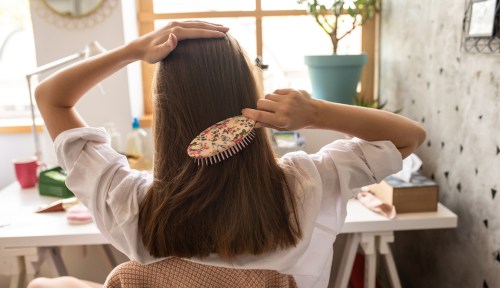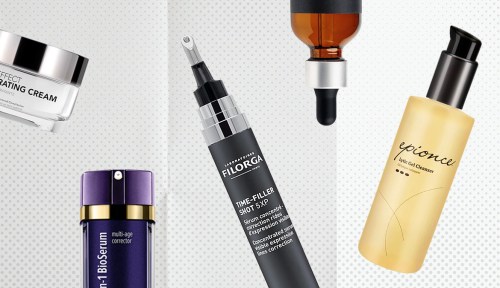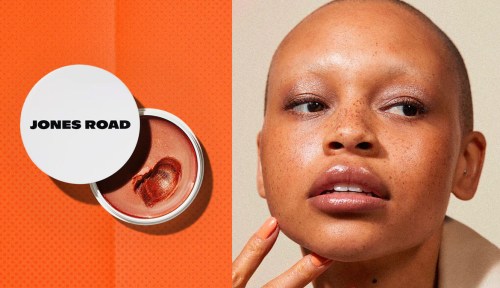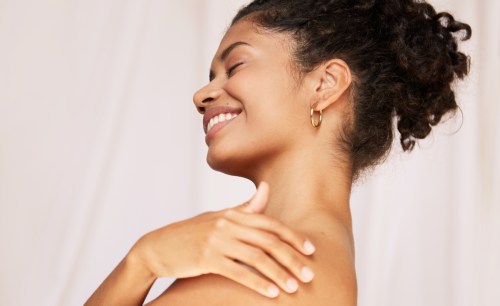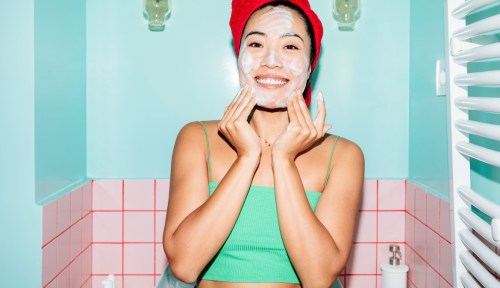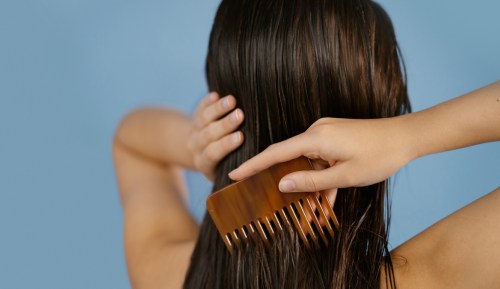Our editors independently select these products. Making a purchase through our links may earn Well+Good a commission
The best brushes for fine hair will add volume and make hair care a thousand times easier and more effective—you just have to know where to look to find one. If you’re in the fine hair family, you’re probably well aware of all the good and bad that comes along with having this hair type. It can require less maintenance compared to other hair types since you can have a wash-and-go approach to styling (yay!). On the other hand, you’re subject to greasy, limp roots and hair that’s too stubborn to hold a curl. (Boo!) The good news is, there are certain tools and products that can help you achieve the kind of hairstyle you want — you just have to know exactly what you’re dealing with.
Experts in This Article
celebrity hairstylist and founder of Andrew Fitzsimons Hair
celebrity hairstylist, salon owner, and founder of Shear Genius Collection
hairstylist at Maxine Salon in Chicago
Best brushes for fine hair at a glance
- Best splurge: Mason Pearson Handy Bristle Brush ($175)
- Best with extra bristles: Denman 9-Row Brush ($24)
- Best with ballpoint tips: Briogeo Vegan Boar Bristle Hair Brush ($28)
- Best large: Denman Natural Bristle with Nylon Brush ($36)
- Best round: Cricket Technique Tourmaline Thermal Round Brush, 1-1/2” ($19)
- Best for short or medium hair: T3 Volume Round Brush ($35)
- Best detangling: Tangle Teezer Fine & Fragile Hair Brush ($13)
- Best budget: Conair Ceramic Wood All-Purpose Boar Hair Brush ($13)
- Best hydrating: Wet Brush Go Green Tea Tree Oil Infused Hair Brush ($17)
- Best soft: Drybar Super Lemon Drop ($20)
- Best paddle: Wigo Perfect Finish Boar Blend Bristles Paddle Hair Brush ($26)
- Best for wet hair: Trademark Beauty Tame Your Mane Hairbrush ($18)
First: thin hair vs. fine hair
When people think of fine hair, the first thing that comes to mind is thin strands, but those are actually two different things. According to celebrity hairstylist, salon owner, and founder of Shear Genius Collection, Annagjid “Kee” Taylor tells us, “Fine hair is usually classified as thin, but it typically refers to the size of the hair shaft versus the amount of hair you have.” She goes on to explain that fine hair is usually softer and appears thinner compared to other hair textures because the natural oils in the hair will weigh it down. Andrew Fitzsimons, a celebrity hairstylist whose clients include Megan Fox and Khloé Kardashian, adds that fine hair strands are “typically smaller in diameter because they are missing the medulla, the innermost layer of the hair shaft.” The more you know!
Why do you need a special brush for fine hair?
Fine hair is also a lot more fragile and delicate, which means that taking care of it may require specific tools, including the brush you use. “Those with fine hair should be reaching for boar bristle brushes,” says Fitzsimons. “This type of brush has soft bristles that are gentle on the hair and scalp. The bristles’ stiff texture detangles hair without pulling too hard, which can lead to hair breakage during styling.” He also says that boar bristle brushes are great at removing dead hairs and distributing the scalp’s natural oils. (And don’t worry if you’re against animal-derived products; there are great vegan boar bristle brushes as well.)
Read on for the best brushes for fine hair that will detangle without damage and bring it from flat to fierce in no time—and keep scrolling for more tips and tricks.
Best brushes for fine hair
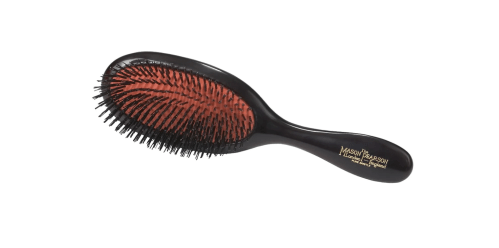
Best splurge: Mason Pearson Handy Bristle Brush — $175.00
Considered by many to be the Rolls Royce of hair brushes, a Mason Pearson is a true investment as it’s well-made and can last for many years. Fitzsimons calls this one an “essential brush because it detangles the hair with ease and stimulates the scalp with every stroke.”
Pros:
- Boar bristle
- Cushion conforms to the scalp
- Includes nylon cleaning brush
Cons:
- Expensive
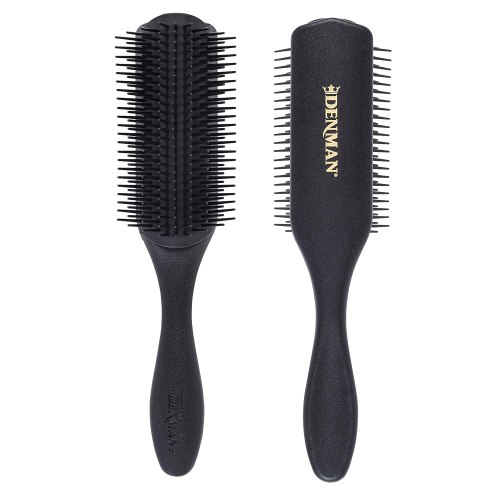
Best with extra bristles: Denman 9-Row Brush — $26.00
Denman is a great lower-priced alternative to Mason Pearson, and this nine-row option fits in with Taylor’s recommendation to use a brush that has more bristles. According to Taylor, the additional rows of bristles are great for detangling thin hair without tugging on the strands. “This will really distribute the oils from your scalp evenly while also detangling the hair,” she says.
Pros:
- More bristles
- Detangling
- Affordable
Cons:
- Some reviewers say brush head slides off handle
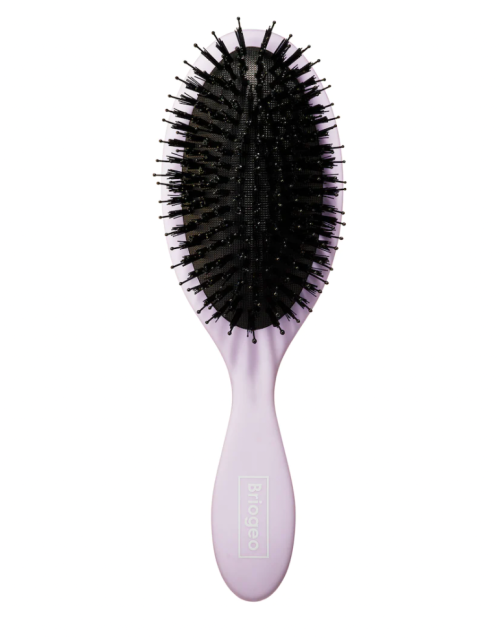
Best ball point: Briogeo Vegan Boar Bristle Hair Brush — $28.00
This vegan boar bristle brush is great for all types of hair, including fine, whether it’s straight, curly, coiled, or wavy. The ballpoint tips massage the scalp gently, distributing oil throughout your hair.
Pros:
- Ball point tips to massage scalp
- Vegan and cruelty-free
- Multi-layered bristles
Cons:
- May not be good for people with hair that tangles easily
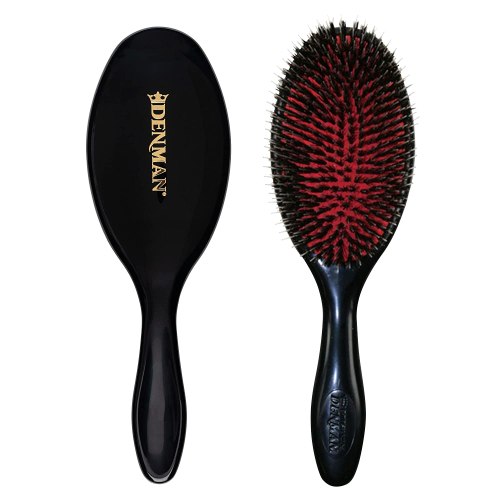
Best large: Denman Natural Bristle with Nylon Brush — $36.00
Fitzsommons also likes this brush from Denman since it combines both boar bristles and nylon pins to detangle, smooth, and helps add shine to the hair.
Pros:
- Large size
- Flexible nylon bristles
- Detangling and smoothing
Cons:
- Bristles are stiff
- Handle is small
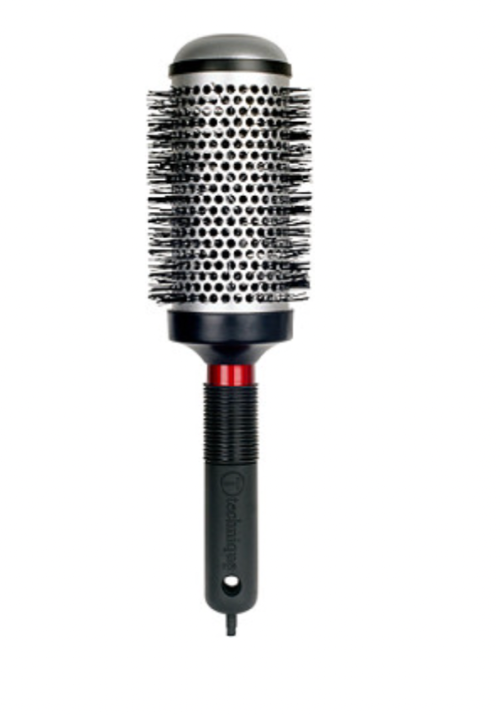
Best round: Cricket Technique Tourmaline Thermal Round Brush, 1-1/2'' — $19.00
When it comes to adding life into limp, fine hair, Taylor says to reach for a round brush, which helps bring volume and height into the mix. “This is perfect for adding more volume and the tourmaline and ionic properties reduce frizz and static,” she says.
Pros:
- Volumizing
- Heat-resistant nylon bristles
- Doesn’t snag in hair
Cons:
- Some reviewers say it creates static
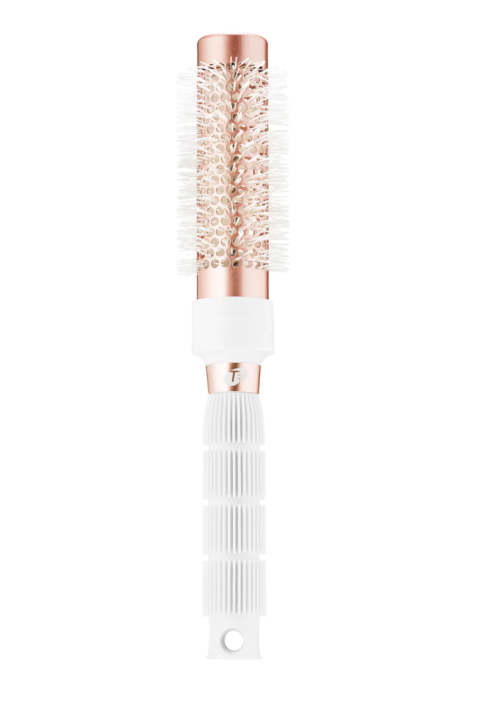
Best for short or medium hair: T3 Volume Round Brush, 2'' — $35.00
If you have short or medium-length fine hair, this round brush is ideal for blow-drying as the design allows air to circulate freely in the heat-resistant bristles. It’s also rose-gold, so it’ll look pretty on your vanity.
Pros:
- Heat-resistant bristles
- Volumizing
- Non-slip handle
Cons:
- Short, sharp bristles
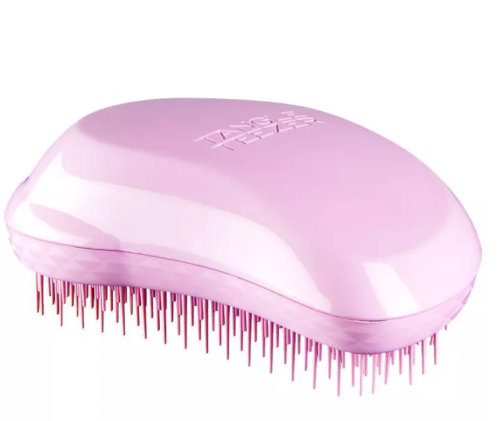
Best detangling: Tangle Teezer Fine & Fragile Hair Brush — $13.00
If you’re in the market for a brush that you can take for travel or just pop in your bag, this one by Tangle Teezer is a great choice. Its two-tiered design allows you to detangle knots fast without causing damage to your strands. (You can also shop here on Amazon.)
Pros:
- Soft teeth
- Detangling
- Ergonomic design
Cons:
- Harder to grip
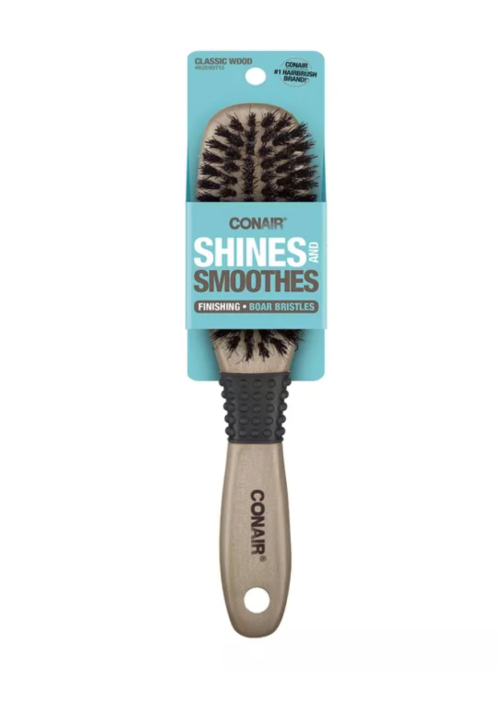
Best budget: Conair Ceramic Wood All-Purpose Boar Hair Brush — $13.00
Another great option for boar bristles that’s super affordable, this Conair brush is especially good for fine hair folks with shorter cuts. Plus, the classic wooden design is incredibly chic.
Pros:
- Boar bristles
- Detangling
- Good for all hair types, especially short hair
Cons:
- Bristles are short
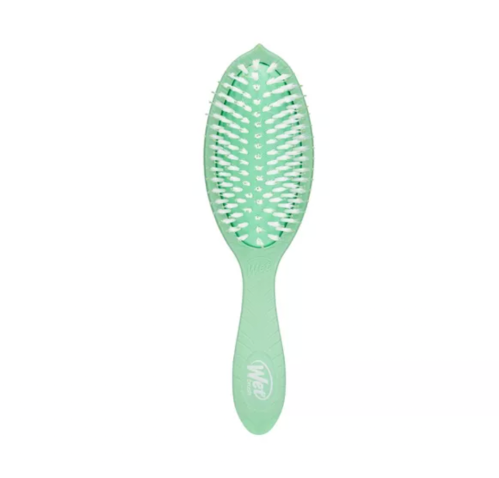
Best hydrating: Wet Brush Go Green Tea Tree Oil Infused Hair Brush — $17.00
This vegan boar bristle brush not only protects from breakage while you detangle and smooth your hair, but it’s also infused with tea tree oil, so every time you brush you get additional nourishment with each strand. (You can also shop here on Amazon.)
Pros:
- Boar bristles
- Tea tree oil infused cushion
- Gentle
Cons:
- Some reviewers say brush causes static
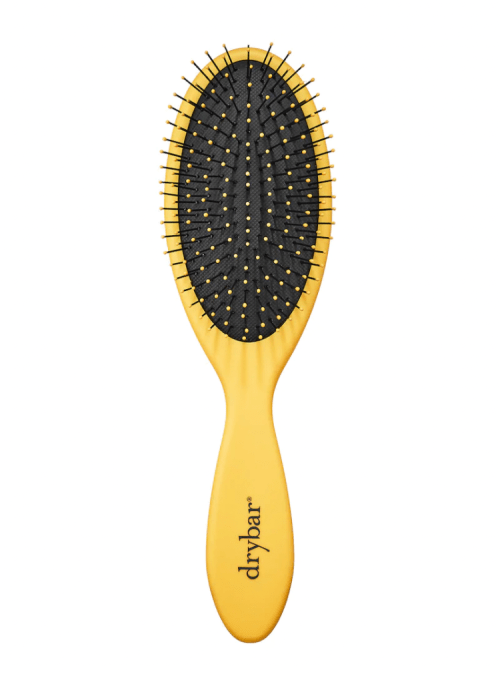
Best soft: Drybar Super Lemon Drop — $20.00
Need a good detangling brush? This one from Drybar has soft, flexible brushes that will eliminate annoying knots without damaging your delicate fine strands.
Pros:
- Flexible bristles
- Can be used on wet or dry hair
- Detangling
Cons:
- Some reviewers say bristles break easily
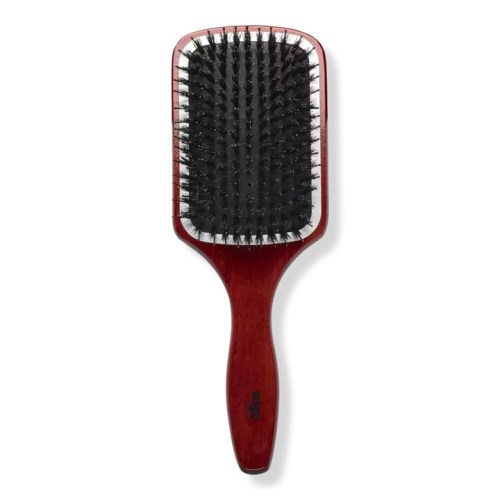
Best paddle: Wigo Perfect Finish Boar Blend Bristles Paddle Hair Brush — $26.00
This paddle brush combines both boar bristles and nylon bristles. Boar bristles “add shine and distributes natural oils from the roots throughout the hair to increase moisture and achieve healthy hair,” says Hurtado, and the nylon bristles help gently detangle. The paddle design gives you plenty of brush surface to work with, so you can spend less time styling and more time rocking that style.
Pros:
- Large paddle design
- Both boar and nylon bristles
- Sturdy wood handle
Cons:
- Better for people with a lot of hair
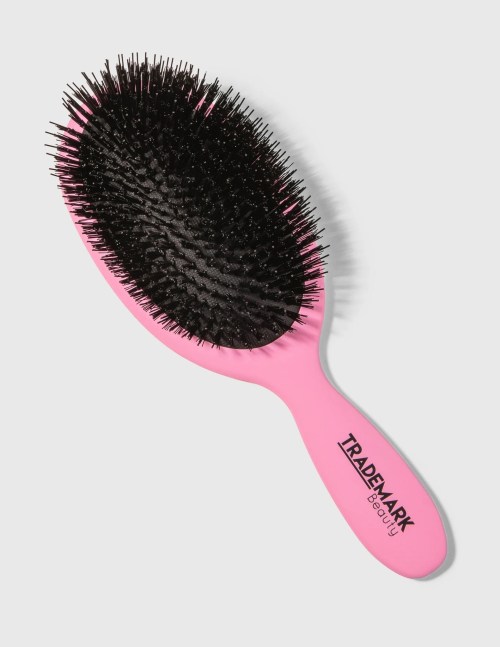
Best for wet hair: Trademark Beauty Tame Your Mane Hairbrush — $18.00
This brush is great for detangling wet hair (it can be used for dry hair, too). “It has flexible silicone bristles that are tough enough for knots and easily glide through hair so it won’t cause breakage. This brush applies tension, but also bends when you don’t need it. I recommend it for people who tangle pretty easy, fine hair, and for people who have highlighted hair since highlights can sometimes cause tangles which is normal,” says Hurtado. (You can also shop here on Amazon.)
Pros:
- Flexible, dual length bristles
- Works on both wet and dry hair
- Smoothes hair
Cons:
- Some reviewers say the bristles are stiff
Additional tips for caring for and styling fine hair
There are two things Taylor says to avoid when styling fine hair: overbrushing and excess product. “Thin hair is more susceptible to breakage so decreasing the amount of friction you add while brushing is best to avoid that,” she says. “Also, make sure not to add too much product depending on the style, you don’t want to weigh it down more than it naturally is.” If you want some extra hold, try a lightweight hairspray for fine hair.
In addition to using a brush with soft bristles, Raven Hurtado, a stylist at Maxine Salon in Chicago, says to “always start brushing hair from the ends first and work your way up.”
Should you brush your hair when it’s wet or dry?
Fitzsimons also has post-shampooing tips and if you should brush wet hair. “When drying your hair, use towels with a softer material, like a microfiber towel, and brushing it when it’s about 50 percent dry. I would also recommend keeping it moisturized—use products such as detanglers and leave-in conditioners.”
He also says that when you brush your hair, do it in small sections, working from the ends up to the roots, and minimize how much you brush your hair. “Aim to keep it between once or twice a day to help distribute your scalp’s natural oils and avoid breakage,” he says. Plus you’ll want to learn how to clean a hairbrush to keep your strands healthy.
“If you do brush your hair when it’s wet, use a wide tooth comb or a brush designed for wet hair,” adds Hurtado.
Sign up for the Well+Good SHOP Newsletter
Get exclusive deals on wellness, beauty, fitness, and food products that have been hand-picked by our editors.
Got it, you've been added to our email list.
